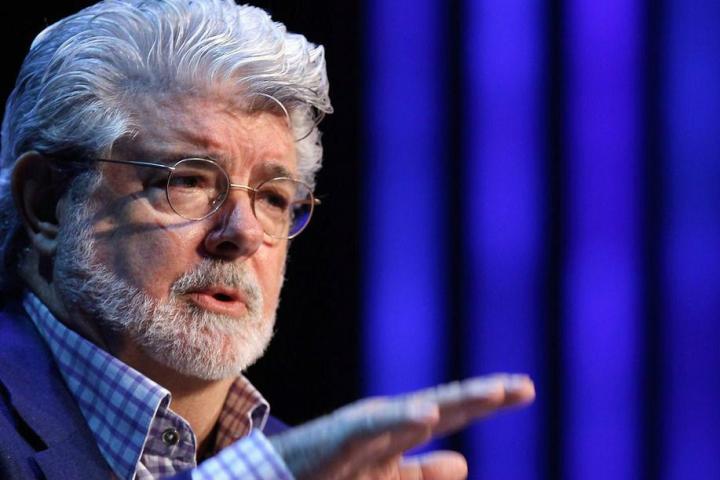
Yeston wrote the lyrics for the majority of the original songs on Christmas in the Stars, including “The Meaning of Christmas.” The song is narrated by Santa Claus’ son who explains why droids such as C-3PO and R2-D2 do not receive gifts for Christmas, a theme that already gives the listener a lot to think about. But the original song took things deeper, including lyrics more focused on the history of Christmas from a non-secular point of view such as: “I will tell you about many, many years ago/ on a planet far from here/ there appeared a new star shining for a single year/ men were far more different then/ much they did not understand.”
Even though Yeston attests that people who heard the original version were “crying hearing this song”(Really? Crying?), Lucas wanted the entire album discontinued because he “did not want to intermingle the message of the Force with Christianity.” But not even the infinitely expanding fictional universe of arguably the most popular interstellar story ever told could stop the spread of Christmas joy, it seems.
Immediately after hearing news of the album’s cancellation, Yeston called the vice president of Lucas Films at the time, Sid Ganis, in an attempt to convince him to have the album completed and released. Yeston gave Ganis an impromptu lesson of the meaning of the song and Christmas as a whole, as he saw it. ” ‘The Meaning of Christmas’ was an attempt to have us sing about the religious connotations and the message of Christmas, but Christmas isn’t just Jesus Christ, it’s also Santa Claus, wreaths on every door, decorating your Christmas tree, it’s a yule log and families coming together to give gifts,” Yeston told Ganis.
Apparently, Yeston’s argument wasn’t persuasive enough to meld the Force with the cross, however. Yeston eventually changed “The Meaning of Christmas” to make it more secular, or as he called it “a shallow, treacly, insignificant, clichéd list of Christmassy kinds of things.” The original lyrics were instead replaced with lyrics like “as any child can see/Christmas needs a Christmas tree/blinking tiny lights with family close at hand.”
George Lucas’ religious affiliation has never felt declarative, just comprehensive. Lucas was raised in a Methodist family and in 1969 married his first wife, Marcia Lucas, at the United First Methodist Church in Pacific Grove, CA. Lucas even claimed to considering himself a “buddhist methodist”, according to a 1999 New York Times article.
If Yeston would have just hung out with eight year old George Lucas for a bit, he may have better understood Lucas’ tepid feelings toward religion. In a revelatory interview with Charlie Rose in late October, the Star Wars creator explained that he once asked his mother at the age of eight “If there’s only one God, why are there so many religions?” Thankfully those questions did not keep the world from the wonders of “What Can You Get a Wookiee for Christmas (When He Already Owns a Comb?).”
Check out the final version of “The Meaning of Christmas” from the 1980 Star Wars Christmas album Christmas In The Stars below:


